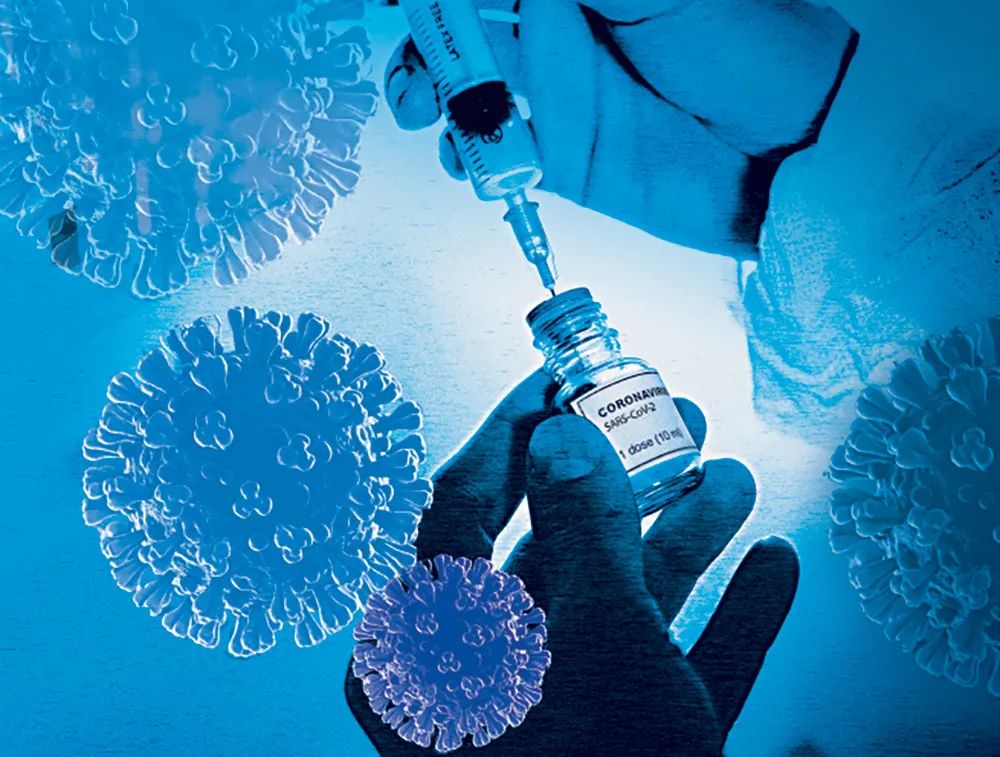“The infectivity of new mutant strains has soared” and “The UK has upgraded the prevention and control of the epidemic”…
Since the outbreak of the novel coronavirus, the evolution of the virus has always been the focus of attention
And the latest reported COVID-19 mutation in the United Kingdom has caused public panic.
Is the mutant virus reported in the UK more pathogenic and deadly? Will the vaccine fail?
Viruses often “go wrong”
Although the phrase “the virus continues to mutate” sounds frightening, in fact, in order to adapt to different hosts, mutation is the “normal” in the process of self-replication of viruses.
When viruses reproduce within cells, they copy a genetic material for each “child” virus. These copies are not always perfect, and there are often some “errors” that occur, that is, genetic mutations occur.
Some of the changes caused by “mistakes” may not be conducive to the survival of the virus, while others may make the virus more transmitable and even more pathogenic.
The novel coronavirus is a RNA (ribonucleic acid) virus and mutates relatively quickly. However, COVID-19 is more stable than RNA viruses such as influenza viruses.
According to Sumia Swaminathan, the chief scientist of the World Health Organization, the novel coronavirus mutates much slower than the influenza virus.
Reports of COVID-19 mutation have long been reported. In the early days of the epidemic, the world’s leading strain of COVID-19 was called “D strain”.
However, the virus quickly mutated—the 614th amino acid on its spinoprotein changed from aspartic acid (D) to glycine (G).
Studies have found that the virus, known as D614G mutation, has stronger adaptability.
The mutant virus was identified as early as February this year, when it was mainly transmitted in Europe and the Americas.
Since then, mutant COVID-19 has also been found in South Africa, Spain, Denmark, Sweden, Malaysia and other countries and regions.
Why does the new strain “grab headlines” ?

The newly reported variant coronavirus in the UK is named VUI-202012/01. Patrick Vallance, the chief scientific adviser of the British government, said that the mutant virus is becoming the main viral variant in the UK.
There are media reports that 23 mutations have appeared on the gene sequence of the mutant virus, which is worrying.
Chris Whitty, England’s chief medical officer, said in a statement on the 19th that after relevant research and model analysis, experts believe that the newly reported mutant virus “can spread faster”.
However, the faster transmission of the virus does not mean that it is more pathogenic.
In the eyes of the virus, breeding and wider transmission are the goals, not killing the host. Therefore, while strengthening their own transmission ability, some viruses will even evolve in a less pathogenic direction.
Michael Ryan, head of the WHO Health Emergency Project, said on the 21st that there is no evidence that the severity of the disease caused by the newly reported mutant virus in the United Kingdom has increased.
Moreover, even if the virus’s infectivity is slightly improved, it does not mean that the epidemic is out of control. I believe that through efforts to fight the epidemic, the spread of the virus can still be blocked.
Is the coronavirus vaccine still effective?
Several WHO experts said on the 21st that although the virus has undergone several genetic mutations since the outbreak of the novel coronavirus, the known mutations, including the recent mutations in the United Kingdom, have not had a significant impact on coronavirus drugs, treatments, detection methods and vaccines.

Monsef Slavey, chief adviser of Operation Warp, a U.S. coronavirus vaccine and drug solution program, believes that the possibility of mutant viruses will develop drug resistance to existing vaccines is very low.
Trevor Bedford, a biology and genetics expert at the Fred Hutchinson Cancer Research Center in the United States, pointed out that to undermine the effectiveness of the vaccine, a large number of rewrites of gene sequences may be required, not just a few mutations.
But he also pointed out that vaccines may need to be fine-tuned over time.
Some experts believe that virus mutation may affect detection. Maria Van Kelkhofer, Technical Director of the WHO Health Emergency Project, said that the mutant novel coronavirus reported in the United Kingdom has not yet affected most tests, because the vast majority of tests focus on multiple targets in the viral genome, but it is true that very few single-targeted tests may be affected by the virus.
The virus cannot be detected effectively due to the different effects.
Swaminatan, the chief scientist of WHO, stressed that people should continuously monitor the genetic changes of the virus, and also focus on reducing the speed of the virus’s transmission.
Because the more the virus spreads, the greater the chance of mutation.



